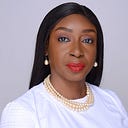The rise of the GRV brand
… and how PR might have improved the prospects of some political candidates
Eighteen candidates contested for the seat of the President of Nigeria in the 2023 general elections. Unfortunately, many Nigerians neither knew them nor their political parties until the Arise News town halls early this year. Indeed, several aspirants, including Kola Abiola of the People’s Redemption Party (PRP) and Prince Adewole Adebayo of the Social Democratic Party (SDP), had impressive outings.
However, in the end, most Nigerians referred to four main parties — the All Progressives Congress (APC), Peoples Democratic Party (PDP), Labour Party (LP) and New Nigeria People’s Party (NNPP). The one thing these four political parties had going for them was that their frontline candidates were well-known faces with track records. To the electorate, they also stand for something — activism, business acumen, frugality, philanthropy, political strategy and populism.
Also, the same cannot be said for the less prominent candidates. Although they have websites with manifestos, pre-election Google searches for them returned scant results. Similarly, some have Wikipedia pages but with scanty information about their careers and personal lives. That was also the case with the candidates who contested for seats at the senate, house of representatives and state houses of assembly.
After the announcement of the House of Representatives results, Nollywood actor Deyemi Okanlawo stated on Instagram that he did not know the House of Representatives seat winner for his constituency.
According to him, he had tried to find information about his representative to understand his manifesto to no avail. Whilst the actor received several criticisms and has since apologised and the issue put to rest, it is worth mentioning that some candidates could have had a better chance if they had invested a little in PR to increase their visibility and build credibility with the public.
When electioneering kicked off at the end of 2022, it seemed like the race would be between Abdul-Azeez ‘Jandor’ Adediran of the PDP and the incumbent APC governor Babajide Sanwo-Olu. Jandor’s campaign, ‘JafunEko,’ a play on Jandor and his running mate’s first name, Funke, which translates to ‘Fight for Lagos’ was one of the first political campaigns to launch. It gets a pass mark for message delivery and memorability.
Funso Doherty of the African Democratic Congress (ADC) did not do much campaigning and Gbadebo Rhodes-Vivour did not start as a strong contender in this election cycle. Several Lagos voters were introduced to Doherty and Rhodes-Vivour during the Platform debate in January, and Rhodes-Vivour came across as the least confident.
However, after the announcement of the presidential election result on 1 March, GRV, as Rhodes-Vivour is now fondly called, began to grow in popularity.
His message, ‘Eko e Dide’ which translates to ‘Lagos, get up’ from ‘The State of Lagos Address’ received mixed reactions, but his second campaign message, ‘The architect of a new Lagos,’ resonated with a lot more people. The electorate who wanted a change from the status quo argued that whilst Jandor’s campaign also highlighted the deplorable state of infrastructure in parts of Lagos, and Doherty is brilliant and has the right leadership qualities needed to run Lagos State, it was the MIT-trained architect that seemed more appropriate to tackle Lagos’s infrastructural problems.
Undoubtedly, Peter Obi’s goodwill rubbed off on GRV. Still, in an election cycle when interest in the candidate’s ‘character’ and ‘competence’ heightened, people wanted to know more about GRV and began to seek information about him.
In no time, messages about his interests and opinions began to circulate on social media. For instance, his political career with a record of cross-carpeting, participation in the #EndSARS protest, his views about the agitations in the southeast and his campaign against genetically modified crops. These interests and opinions created either supporters or detractors. Consequently, he was maligned on social media. His legitimacy as a Lagosian and his educational qualifications were also questioned. The controversies attracted the media’s attention and his ability to counter some of the negative narratives further boosted his popularity.
Like Obi, no interview was inconsequential to GRV. He used them to reinforce his message. From the podcasts ‘With Chude’ and ‘I Said What I Said’ to Arise News and Wazobia Max TV, each interview gave him a chance to sell his manifesto and connect with more voters and he did so. The idea of an accessible governor endeared GRV to many who began to see him as the guy next door vying for office.
As it turned out, in less than two weeks, a man who was mocked for stuttering when he tried to say ‘unequivocally,’ possibly due to stage fright, and his inability to speak Yoruba fluently, became the biggest threat to a sitting APC governor in Lagos State. The events that followed will be remembered by Nigerians for a long time.
We hope that at the end of this election cycle, politicians who decline political debates and media interviews have learnt that it could save them the last-minute helter-skelter and damage control. For the less prominent candidates, we hope they learnt the importance of visibility.
To all aspiring to run for office in 2027, audit your current image, decide what you want to stand for and start building your brand now. A good online presence is also non-negotiable because the 2023 general elections proved that it is no longer business as usual. The netizens are now actively involved in Nigerian politics.
